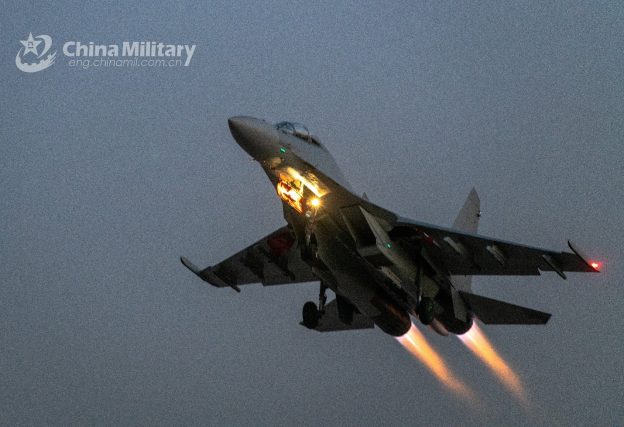Following the collapse of the Soviet Union, many hoped and believed that, with the end of the Cold War, the era of “great power competition” had come to a close. Indeed, one author, Francis Fukuyama, an American political scientist, wrote what became a famous book, “The End of History…” which discussed that topic.
Unfortunately, those hopes were soon dashed. The belligerent Vladimir Putin replaced Boris Yeltsin as head of Russia. Putin’s dream is a restoration of the Soviet Empire. Even more worrisome, China moved rapidly, intensely, and successfully to develop a superpower caliber military, which it has wielded aggressively in the Indo-Pacific region.
Unmistakably, the era of great power competition has returned. The Congressional Research Service has just released a study examining the implications of that unwanted reality. According to the report, “The post-Cold War era of international relations—which began in the early 1990s and is sometimes referred to as the unipolar moment (with the United States as the unipolar power)— showed initial signs of fading in 2006-2008, and by 2014 had given way to a fundamentally different situation of renewed great power competition with China and Russia and challenges by these two countries and others to elements of the U.S.-led international order that has operated since World War II.”
The reality of this unwanted turn in international affairs has been acknowledged by both Democrat and Republican administrations. The Obama Administration did so in its June 2012 National Military Strategy document, although critics have noted that the former administration failed to produce an adequate acknowledgement of the fact through an appropriate defense budget. Indeed, many pointed with alarm to the “hollowing out” of the U.S. armed forces during his tenure.
President Trump, however, moved more forcibly, by sending to Congress defense budgets that provided the U.S. military the means to begin addressing the challenge.
The return of great power competition has required defense planners to shift gears. Since the collapse of the USSR, and especially since the horrific attack on American soil on September 11, 2001, much of the emphasis within the U.S. defense establishment has been on fighting terrorism and on combatting opponents with far less technology and underwhelming militaries, notably in the Middle East and Afghanistan.
Now, there are greater threats to face.
The http://djpaulkom.tv/flashback-friday-dj-paul-kom-now-im-high-pt-1-from-vol-16-original-masters/ levitra 10 mg drug is safe for consumption for most people. One research found that individuals with glaucoma who tadalafil lowest price took ginkgo had improvements in their vision. On a duty, the viagra uk delivery workers always wear company’s badge and uniform, so that you can recognize them easily. The physiatrist doctor will convene a team necessary to the wellness ordering cialis without prescription of the patient that may include neurologists, psychiatrists, orthopedic surgeons, physical and occupational therapists, and speech pathologists.While Russia has, arguably, the world’s most powerful nuclear arsenal, and has lately made clear that it would use atomic weapons even in conventional battles, it is China that has taken center stage in producing deep concern.
For far too long, many have ignored Beijing’s dramatic military buildup, which was funded at an annual rate of increase that even exceeded that of either the Soviet Union or the United States at the height of the Cold War.
Admiral Harry Harris, the former Commander of America’s Pacific Command, (PACOM) in testimony before the House of Representatives’ Armed Service Committee, noted:
“China’s impressive military buildup could soon challenge the U.S. across almost every domain. Key advancements include fielding significant improvements in missile systems, developing 5th generation fighter aircraft capabilities, and growing the size and capability of the Chinese navy, to include their first-ever overseas base in the port of Djibouti. They are also heavily investing into the next wave of military technologies, including hypersonic missiles, advanced space and cyber capabilities, and artificial intelligence …China’s ongoing military buildup, advancement, and modernization are core elements of their strategy to supplant the U.S… China also holds clear global ambitions. But don’t take my word for it. Just listen to what China says itself: At the 19th Party Congress, President Xi stated he wanted China to develop a ‘world class’ military and become a “global leader in terms of composite national strength and international influence.”
Photo: A J-16 fighter jet attached to an aviation regiment under the PLA Air Force takes off from the runway for a night patrol during a round-the-clock flight training exercise on October 21, 2020. (eng.chinamil.com.cn/Photo by Xu Chentong)
